Foundation for Rural & Regional Renewal (FRRR)
The Foundation for Rural & Regional Renewal (FRRR) and the Australian Rural Leadership Foundation (ARLF) have today announced the appointment of Nous Group to assess the impact of the Future Drought Fund’s Helping Regional Communities Prepare for Drought Initiative, which is funded by the Australian Government.
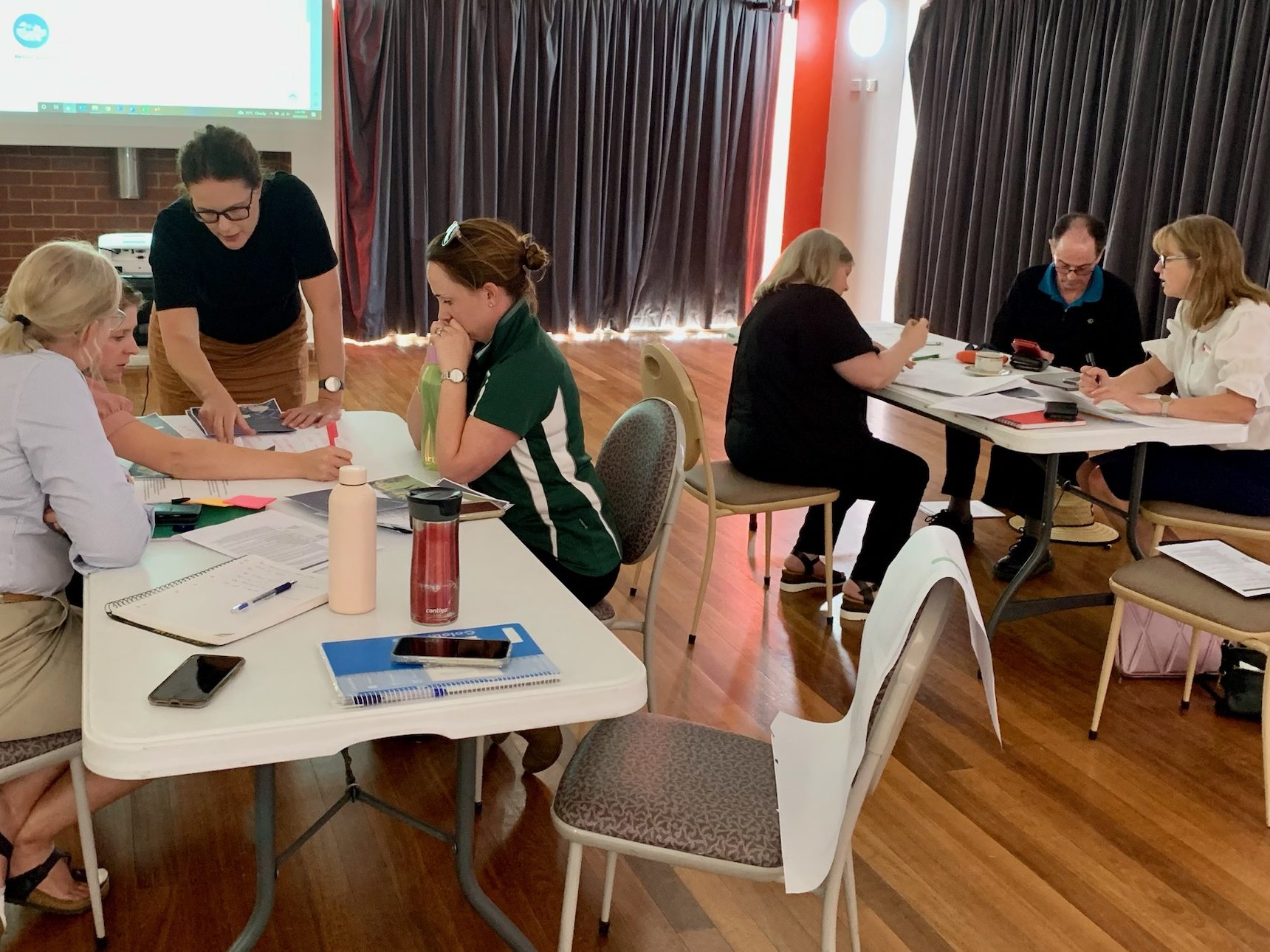
The Future Drought Fund’s Helping Regional Communities Prepare for Drought Initiative aims to build enduring resilience to the impacts of climate change and drought and to enhance the public good in agriculture-dependent communities. It focuses on building community capacity by strengthening social and community networking, support, engagement and wellbeing.
There are five parts to the Initiative, including the Community Impact Program, Small Grants, a Learning Network, Mentoring Program and Expertise Pool to support local groups implementing their projects, all of which will be evaluated.
While the evaluation will explore the outcomes of the Initiative, it will also provide valuable feedback on the various funding mechanisms employed and the impact of leadership development initiatives delivered. This will also reveal insights into the different ways that the Australian Government can invest in remote, rural and regional communities to address locally prioritised challenges. In total, $1.3 million will be invested in the process, reflecting the value that FRRR, ARLF and the Australian Government place on evaluation, something that is often not prioritised or funded.
Multi-year evaluation
The evaluation will take place over two and a half years and see Nous Group consult with the delivery partners, as well as other stakeholders, to develop the evaluation plan and then work closely with local leaders and with the delivery partners on the evaluation itself.
Phase 1 data collection and analysis is already underway, as the first tranche of funding has been awarded. An interim report will be prepared mid-2024, followed by workshops for community groups and stakeholders to unpack the learnings to date. Phase 2 of data collection will then get underway in August 2024, with the final report due September 2025.
FRRR’s Disaster Resilience and Recovery Lead, Nina O’Brien, says that there are great efficiency gains in having Nous Group undertake this work, as they are familiar with both the Future Drought Fund and with the delivery partners. “Nous Group supported the Department of Agriculture, Fisheries and Forestry (DAFF) to design the Measuring, Learning and Evaluation (MEL) framework for the overall Future Drought Fund, so they are intimately familiar with the overall aims of the various streams of work the Fund supports. They bring a depth of understanding and rigour to the process, while still being able to work closely with and relate to the groups delivering projects on the ground.
“What we are most excited about however, is that this process will help build the capacity of communities and stakeholders to engage with and ultimately undertake more formal evaluations of the projects and initiatives that they run. They can learn by doing. These skills will help local communities then better direct their limited resources, as well as be able to provide greater evidence to support funding applications for their initiatives.
“We look forward to working with Nous Group to co-design the evaluation approach and collect insights for the evaluation. We will also be connecting them directly with the local lead partner and other groups delivering projects in the community to understand the impact of the various elements of the Initiative, as well as bring together community groups and stakeholders to explore and interpret their findings,” Ms O’Brien said.
Matt Linnegar, CEO of the ARLF, says understanding the impact is becoming more important for people participating in initiatives, as well as those providing the support for it to happen.
“It’s increasingly important to understand the impact of initiatives like the Helping Regional Communities Prepare for Drought Initiative at depth and from multiple perspectives.
“This is because when we’re talking about leadership across regions and communities, we’re talking about people, relationships, networks and structures. Here, understanding the quantitative impact or intervention on the participant alone isn’t enough.
“It’s important to understand the individual and collective impact those people have on their regions and communities.
“As the ARLF continues to grow its work in the impact evaluation space, we highly value the collaboration with FRRR and work with Nous as an evaluation partner for this Initiative.”
Carlos Blanco, Nous Group Director, says Nous is excited to partner with the FRRR, ARLF and DAFF to collaborate with delivery partners, initiative participants and communities to help build even greater resilience within drought-prone communities.
“Nous has a long history of working with regional communities across Australia. We’re looking forward to co-designing and delivering an evaluation that strengthens the evidence base on how to empower remote, rural, and regional Australia to become more prepared for and resilient to the impacts of drought,” Mr Blanco said.
If community groups have any questions about the evaluation process, they can contact FRRR via futuredrought@frrr.org.au.
Local not-for-profits (NFPs) across the Central West NSW and WA Great Southern region are being encouraged to submit an Expression of Interest (EOI) to partner with the Foundation for Rural & Regional Renewal (FRRR) and the Australian Rural Leadership Foundation (ARLF) to lead the Future Drought Fund’s Helping Regional Communities Prepare for Drought Initiative’s Community Impact Program in their region.
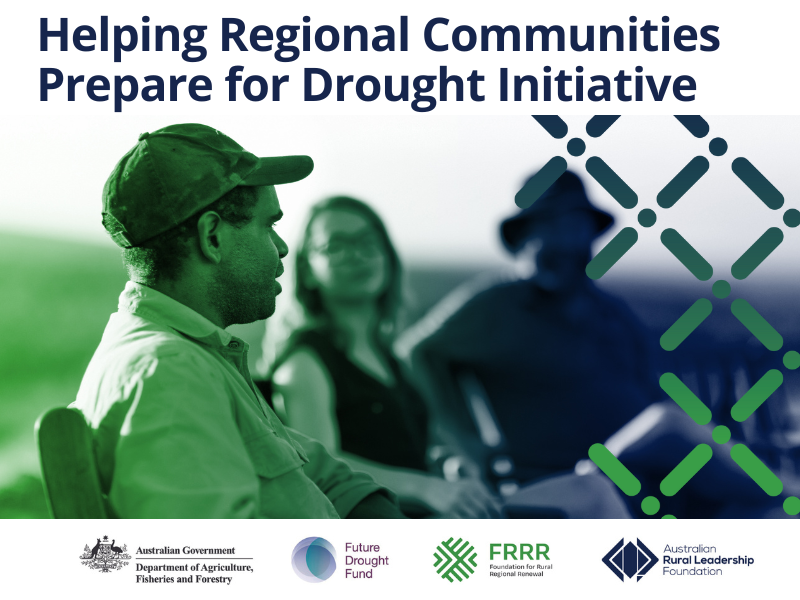
The Initiative seeks to help agriculture-dependent communities in regions across remote, rural, and regional Australia that are vulnerable to the impacts of drought become more prepared for and resilient to these impacts.
It is part of the Australian Government’s $29.6 million investment in drought resilience initiatives over three years and builds on the Future Drought Fund’s previous Networks to Build Drought Resilience program (led by FRRR) and the Drought Resilience Leaders program (led by ARLF).
There are two main components to the program:
- Community Impact Grants: Grants between $200,000 and $500,000 for projects that strengthen community networks, capabilities and facilities that support drought preparedness; and
- Community Leadership Activities: AARLF will offer a range of funded leadership development activities to support community members to develop their leadership skills and equip them with the networks to respond to drought preparedness in their community.
Nina O’Brien, FRRR’s Disaster Resilience and Climate Solutions Portfolio Lead, said that this a great opportunity for community groups in Central West NSW and the Great Southern region of WA to proactively strengthen drought resilience across their regions.
“Rural communities are better able to withstand the impacts of events like drought when they are strong and well connected. The overall aim of this program is to ensure communities are better prepared for future.
“But we know that looks different in each community, which is why we are looking for a local lead partner. They can then work with other community members and organisations to identify what local action will be most appropriate. FRRR staff will be there to support the process and we’ll also fund a facilitator to work with the community to get the best outcome possible.
“The grants can fund projects, events, initiatives, training, capability building and small-scale community infrastructure projects and we’re really keen to make sure that First Nations communities and younger people are also engaged in drought resilience planning and action.
“We have already funded some impressive projects in other ag-dependent communities, including training and awareness-building activities to develop skills and knowledge to face the unique challenges caused by drought, preparedness upskilling and capacity building for local NFPs, and youth-focused activities such as field training and skills development programs,” Ms O’Brien explained.
As part of the program, ARLF will offer several complementary Leadership Development Activities at no cost to the successful applicants. These are designed to strengthen the leadership capabilities of communities to build individual and community drought resilience.
ARLF’s Chief Executive Officer Matt Linnegar said that because every lead organisation and region will be at a different point in their resilience journey, ARLF has a number of options that communities can tap into.
“We have five leadership development activities, ranging from intensive residential leadership programs to a series of deep-dives into particular leadership topics to group coaching. Each is underpinned by the concepts of adaptive leadership, resilience and network leadership.
“Applicants will need to include their preference for leadership development activities when they lodge their express of interest for the Community Impact Program, and we will work closely with applicants to refine their preferences as we move through the collaborative project design phase,” Mr Linnegar explained.
Expressions of Interest close 9 June, with shortlisted groups commencing co-design in their communities in August and funding confirmed in November 2023. Groups will have until June 2025 to implement the projects.
Interested groups can learn more about the program and lodge their EOI here.
In partnership with The Yulgilbar Foundation, FRRR has awarded $785,794 in grants to 23 local groups for community projects designed to strengthen community capacity and resilience in the Clarence Valley and surrounding region.
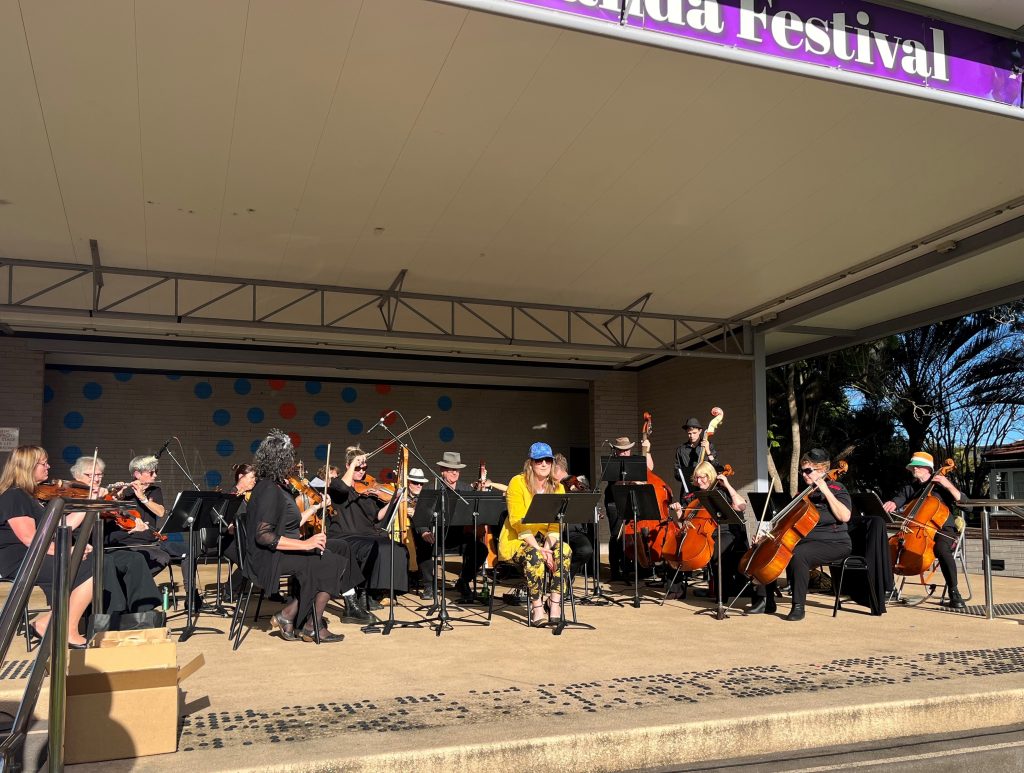
These grants, which are funded through The Yulgilbar Foundation Fund program, are the final tranche of a $2 million commitment awarded over the last three years.
In the wake of the 2019/20 bushfires and subsequent disasters including floods and COVID, these grants will support local groups to foster community connection, education and wellbeing across the region.
Ten of the 23 grants will support local events and festivals. This includes the Grafton Jacaranda Festival for a concert for 5,000 people Featuring Troy Cassar-Daley and Don Walker.
Also set to perform on stage at the Grafton Jacaranda Festival is the Big Scrub Orchestra, which has also been awarded funds. The Orchestra’s grant will support music workshops to boost resilience, health and wellbeing of local children in five small rural public schools and support their performance in the Jacaranda Festival.
Sarah Matthee, FRRR’s General Manager of Partnerships and Services, said that the projects funded demonstrate the important role that social connectedness plays in disaster recovery.
“While each place has its own unique set of recovery needs, in this round of grants we saw many community groups seeking funding for projects designed to bring people together to strengthen social connections, which is such an important part of the recovery process. This also gives us valuable insight into where communities are in their recovery journey.”
Madeleine Noble, Executive Officer of The Yulgilbar Foundation said the Foundation is proud to support a variety of projects across the region, many of which will boost the capacity of local groups to contribute to recovery activities.
“For example, funding for Container of Dreams based near Tabulam will help women develop micro-enterprise skills, Woombah Residents Association will expand activities at the community garden focusing on disaster preparedness, and Lawrence Community Fundraising will run a series of creative workshops and events celebrating local residents and their skills”.
More information is available on FRRR’s website – https://frrr.org.au/funding/the-yulgilbar-foundation-fund/.
The full list of grant recipients and their projects are below.
| Organisation | Project | Location | Grant | |||
|---|---|---|---|---|---|---|
| ARMIDALE | ||||||
| Backtrack Youth Works Ltd | BackTrack 'Paws Up' School Outreach Program Grow literacy skills, confidence, and resilience of primary school children in bushfire-affected communities in the NSW New England region through animal-assisted activities linked to school curriculum. | Ben Lomond | $30,000 | |||
| CLARENCE VALLEY | ||||||
| 2TLC FM Lower Clarence Community Radio Incorporated Association | Storage Unit Project Improve facilities and space at local community radio station in Yamba, northern rivers region, by adding a storage unit for key equipment. | Yamba | $12,500 | |||
| Clarence Valley Conservatorium Inc | A Smart Conservatorium Enhance the learning and performing experience of music students through installation of smartboards and computers in teaching studios of the Clarence Valley Conservatorium and purchase of portal stage units. | Grafton | $27,480 | |||
| Genhealth Incorporated | headspace Grafton - Creative Groups Boost health, wellbeing and connectedness of young people in Grafton through a series of afterschool and school holiday youth-informed creative arts activities. | Grafton | $34,263 | |||
| Grafton Jacaranda Festival Inc | Troy Cassar-Daly + Don Walker Celebrate Indigenous culture, boost community spirit and wellbeing and stimulate the local economy in Grafton through a free concert for 5,000 people featuring Troy Cassar-Daley and Don Walker as part of the famous Jacaranda Festival. | Grafton | $30,000 | |||
| Iluka Community Organisation Planning for Emergencies (ICOPE) Inc | Field of Friends Iluka Village Community Parties Project Foster community connection and resilience following multiple local disaster events through three free community events across 12 months which will also engage local emergency services organisations to provide education and awareness. | Iluka | $17,548 | |||
| Lawrence Community Fundraising Inc | Lawrence Loves... Grow community engagement and sense of belonging in the small village of Lawrence in the Northern Rivers following local disaster events and COVID-19 through a series of creative workshops, performances, and a whole community event. | Lawrence | $40,000 | |||
| Mudyala Aboriginal Corporation | Rising Warriors After School Engagement Program Boost social connections and activities for Aboriginal youth in the Clarence Valley through youth worker led programs and school holiday activities. | Maclean | $45,000 | |||
| Ozfish Unlimited Limited | Nymboida River Riparian, Restoring Habitat for the Endangered Eastern Fresh Water Cod Improve water quality and fish habitat in the Nymboida River post bushfire events and increase local awareness of natural resource management techniques through planting, restoration activities and educational citizen science program. | Nymboida | $40,000 | |||
| The Big Scrub Orchestra | Bringing Music Healing to Young People in the Clarence Valley Boost resilience, health, and wellbeing for children in five small rural public schools following multiple local disasters through 175 Modern Band workshops introducing children to various instruments and song writing as well as performance at the Grafton Jacaranda Festival with local Indigenous music icon Troy Cassar-Daly. | Grafton | $49,000 | |||
| The Long Way Home Byron Writers Festival | Stories From The Clarence Valley 2023 - Grow Share and celebrate stories from residents of the Clarence Valley by publishing a book showcasing local writers collated through The Long Way Home writing competition. | Grafton | $2,233 | |||
| Woombah Residents Association Incorporated | Meet you at the Garden - Building Community Resilience in Woombah Improve social connections, engagement with local services and awareness of disaster preparedness in Woombah through a series of environmentally themed workshops and community events, equipment and light infrastructure. | Woombah | $30,000 | |||
| COFFS HARBOUR | ||||||
| Glenreagh Heartstart | Orara Valley Resilience Hub - Community Consultation Improve local connections and disaster resilience for residents in the towns and villages of the Orara Valley through community-led consultation to establish a Resilience Hub in Glenreagh. | Upper Orara | $26,000 | |||
| KYOGLE | ||||||
| Friends of the Labyrinth Kyogle Community Economic Development Committee | A Place for Quiet Contemplation and Inner Peace Boost health and wellbeing in Kyogle in the northern rivers through the promotion of the local community labyrinth to foster greater awareness and use. | Kyogle | $4,682 | |||
| LISMORE | ||||||
| Arts Northern Rivers Incorporated | Northern Rivers Creative Industries Recovery Forum 2022 A two-day regional forum for bringing together the creative industry sector to develop a future road map for longer term recovery post 2022 Big Floods in the Northern Rivers region of NSW. | Lismore | $15,000 | |||
| RICHMOND VALLEY | ||||||
| Broadwater Rileys Hill Community Centre | Rekindling Community Connections in Broadwater Lift community spirit and connectedness in Broadwater following the devastating floods in the region through monthly community dinners and activities. | Broadwater | $10,283 | |||
| Casinos Own Wireless Association Inc | Casino Cow Country Music Muster (CCCMM) Boost community spirit and the local economy following devasting disasters, including recent flooding events, through a five-day country music festival in Casino. | Casino | $22,267 | |||
| Clovass-Mskees Hill Soldiers Memorial and Community Hall Incorporated | Power Us Up Improve power supply and availability during local outages and in times of disaster at Clovass McKees Hill Soldiers Memorial and Community Hall, Richmond Valley, through installation of a battery to store power generated by the existing solar system. | McKees Hill | $18,900 | |||
| The Evans Head Living Museum Inc | Purchase a Large Format Printer and Desk Top Tower computer Increase capacity of the Evans Head Museum to prepare and present displays and support local community groups through new technology by purchasing a desktop computer and large format printer. | Evans Head | $10,698 | |||
| TENTERFIELD | ||||||
| Container of Dreams Ltd | Container of Dreams Community Market Cart - Micro-Enterprise Workshops Empower ten women in Drake to develop micro-enterprise skills to support financial independence, improve wellbeing and resilience, and contribute to the local economy through their own market stalls. | Drake | $46,940 | |||
| ADDITIONAL GRANTS | ||||||
| Arts Northern Rivers Incorporated | Screening Tour to Recovering Bushfire-Affected Communities Boost social connections and provide an opportunity to reflect and recover for various bushfire-affected communities in rural and regional NSW, including the Clarence Valley, through a live music and documentary screening tour. | Various NSW Locations | $127,000 | |||
| Department of Education Baryulgil Public School | Strengthening Educational Aspiration and Wellbeing Opportunities in Baryulgil Foster wellbeing, cultural connections, and educational pathways for students at Baryulgil Public School through an on-site wellbeing hub and minibus providing flexible transport options for the remote school. | Baryulgil | $146,000 | |||
More than $1.7M awarded thanks to Future Drought Fund
FRRR and ARLF are pleased to announce the first organisations to receive funding through the Future Drought Fund’s Helping Regional Communities Prepare for Drought Initiative.
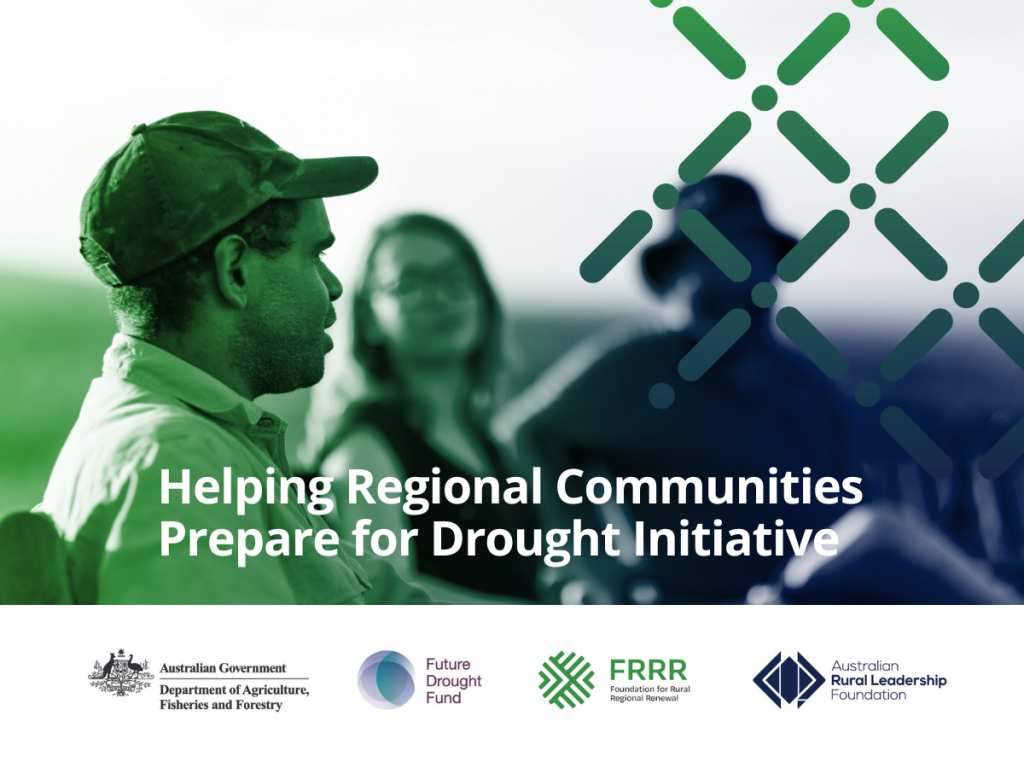
The Initiative, which is being delivered by FRRR in partnership with ARLF, seeks to help agriculture-dependent communities in regions across remote, rural, and regional Australia that are vulnerable to the impacts of drought become more prepared for and resilient to these impacts.
Over the last three months, FRRR and ARLF have worked closely with a local community partner lead organisation in five areas to identify projects that local groups across each region can implement to enhance preparedness for drought.
This first tranche of funding through the Community Impact Program sees five regions awarded $1.7M, which is being shared across 15 organisations.
In the coming months, the local community partner lead organisation will collaborate with other grantee organisations in the region to deliver projects that include events, training and workshops that will create opportunities for communities to identify and adopt innovative and transformative ways to build drought resilience, develop a change in awareness of and attitudes to drought preparedness at the community level, learn and share innovative ways to build drought resilience.
FRRR’s Disaster Resilience and Recovery Lead, Nina O’Brien, says that this is a really exciting milestone and a wonderful opportunity for these communities to drive local action that helps prepare for drought.
“People are more resilient when they’re part of a strong community. Through this place-based program, with the Australian Government’s support, we’re investing in the future, enabling agriculture dependent communities to identify and act on their drought preparedness priorities at a grassroots level.
“The overall aim of this program is to facilitate increased social connection, strengthen network opportunities, build leadership skills, and link capacity building opportunities to ensure widespread local benefit, so that communities are better prepared for the future.
“The program was deliberately designed to be flexible, allowing a bespoke approach in each region that reflects the unique conditions in each area. The projects that we’re funding have broad community support. As part of their development, we paid for a facilitator to support the local lead organisation to help bring key stakeholders into the conversation and to make sure that the projects align with local priorities and connect with investments already happening at the community level.
“We look forward to continuing to walk alongside these local groups as they implement their projects over the next two years,” Ms O’Brien said.
Each of the regions being funded will also receive access to tailored ARLF leadership development activities. Lead organisations can choose between one of five leadership development activities, depending on their projects and local priorities. In the first five regions, four different activities have been taken up.
ARLF CEO, Matt Linnegar, says leadership development supports the short-term delivery of projects and yields long-term benefits for the regions.
“In addition to the project funding, these leadership development activities are a crucial investment in building the social capital required to support the project and each region. Connecting local networks, creating a deeper sense of shared purpose and developing capability all contributes to people in each region taking action to address challenges and take advantage of opportunities.
“Participants will also gain access to the wider alumni network of the Australian Rural Leadership Foundation. It’s these connections that prove invaluable to people. When they’re stuck, there’s someone to ask for advice.”
In total, 35 regions will be supported through this program. The remaining regions are due to be announced throughout the rest of 2023.
Other elements of the Future Drought Fund’s Helping Regional Communities Prepare for Drought Initiative are also underway, including the Mentoring program, being led by ARLF, which is still accepting applications. Work is also underway on the design of the network to connect leaders working on these projects across the country and FRRR is finalising the appointment of an expertise panel, which the groups awarded funding can draw on, if they don’t have locally qualified people with the skills they need.
In addition, the first of two rounds of Small Grants for areas that aren’t covered by these Community Impact Program grants is expected to open in later this year.
Learn more about the Helping Regional Communities Prepare for Drought Initiative at www.frrr.org.au/drought-preparedness.
The full list of grant recipients and their projects are below.
| Organisation | Project | Location | Grant | |||
|---|---|---|---|---|---|---|
| Queensland: Region 08 Darling Downs & South Burnett | ||||||
| Red Earth Community Foundation | Community Partner Lead Organisation Region 8 Strengthen drought preparedness and drive local action in the Darling Downs and South Burnett region through the coordination of Community Impact Program activities and evaluation administration. | Darling Downs & South Burnett Region | $38,746 | |||
| Momentum Health | Building Healthier Communities Enhance capability, coordination and collaboration between community networks and organisations that can be drawn upon in times of drought by training local leaders, creating resources and delivering workshops focussed on wellbeing. | South Burnett, Western Downs & Goondiwindi | $92,499 | |||
| Red Earth Community Foundation | Cherbourg Community Leadership Program Strengthen community capacity and leadership through the design and delivery of the Cherbourg Community Leadership Program, to build knowledge and skills to address local challenges caused by drought. | Cherbourg Aboriginal Shire Council | $51,388 | |||
| Burnett Catchment Care Association | Sharing Models of Successful Groups Deliver community led drought preparedness through networking events that build social connections, share innovative approaches to drought resilience and drive local action through peer-to-peer support and a communities of practice approach. | Burnett Region with possibility of working with Toowoomba & Western Downs Groups | $62,401 | |||
| Queensland Murray Darling Catchment Ltd | Water and Climate Drought Education Deliver workshops to school aged children to build knowledge and understanding of the risks posed by drought and climate change and develop skills to positively adapt. | Schools in Darling Downs & Burnett | $73,412 | |||
| Burnett Inland Economic Development Organisation (BIEDO) | Ag Tech in Action in the Burnett Strengthen community and social connections through events and provide opportunities for young people to build knowledge in innovative approaches to drought preparedness, connect with current networks and develop youth specific networks. | North Burnett, South Burnett, Cherbourg & Bundaberg LGAs | $69,007 | |||
| Queensland: Region 09 Fitzroy Capricornia | ||||||
| Dawson Catchment Coordinating Association | Community Partner Lead Organisation Region 9 Strengthen drought preparedness and drive local action in the Fitzroy Capricornia region through the coordination of Community Impact Program activities and evaluation administration. | Fitzroy Capricornia Region | $140,000 | |||
| Central Queensland Landscape Alliance | Remote Community Capacity Building Create leadership and capacity building opportunities, particularly for local young people, through training and awareness-building activities to develop skills and knowledge to face the unique challenges caused by drought. | Focus on Capricornia Catchments work arena | $40,000 | |||
| Not for Profit HQ Limited | NFP Report Card Assessments –Upskilling Build the capability of local not-for-profit organisations to better serve their communities in times of drought and in drought preparedness by delivering a practical skills audit and using the results to develop business and operational plans. | Fitzroy Capricornia Region | $50,000 | |||
| Dawson Catchment Coordinating Association | Improved Community Access –Dawson Catchment Establish a local community network to improve access to, encourage greater utilisation of or create new community infrastructure by collaboratively reviewing available places, spaces and facilities where community groups can gather, function and support their local community in times of drought. | Fitzroy Capricornia Region | $35,547 | |||
| Woorabinda Aboriginal Shire Council | Woorabinda Rangers and Youth Development Program Deliver capacity building activities and field training to increase knowledge of local landscapes and share innovative approaches to drought preparedness, which will strengthen community resilience. | Fitzroy Capricornia Region | $42,000 | |||
| Queensland: Region 11 Hinterland to Gulf | ||||||
| Northern Gulf Resource Management Group Ltd | Community Partner Lead Organisation Region 11 Strengthen drought preparedness and drive local action in the Hinterland to Gulf region through the coordination of Community Impact Program activities and evaluation administration. | Hinterland to Gulf Region | $31,359 | |||
| Northern Gulf Resource Management Group Ltd | Local Capacity for Regional Resilience Project Strengthen organisational capacity and governance of not-for-profit organisations, including those that are First Nations led, by delivering training, workshops, networking events and leadership development activities, so organisations can better support community interests ahead of and in times of drought. | Croydon Shire, Etheridge Shire & Mareeba Shire | $181,250 | |||
| Northern Gulf Resource Management Group Ltd | Digital Capacity and Last Mile Connectivity Project Strengthen the ability of communities to adapt and prepare for drought by delivering workshops that improve access to and greater utilisation of digital infrastructure, thereby strengthening social networks and enabling people to better connect to essential services and support in times of drought. | Croydon Shire, Etheridge Shire & Mareeba Shire | $123,700 | |||
| Queensland: Region 13 Cape York – Torres Strait | ||||||
| Cape York NRM | Community Partner Lead Organisation Region 13 Strengthen drought preparedness and drive local action through the coordination of Community Impact Program activities and evaluation administration. | Cape York – Torres Strait Region | $42,166 | |||
| Torres Cape Indigenous Councils Alliance | Cape York Torres Water Project Increase skills, knowledge and understanding of the risks posed by drought through the delivery of a water education program and activating a co-designed, community led strategic water security plan. | Aurukun Shire, Cook Shire, Doomadgee Aboriginal Shire, Hope Vale Aboriginal Shire, Kowanyama Aboriginal Shire, Lockhart River Aboriginal Shire, Mapoon Aboriginal Shire, Mornington Shire, Napranum Aboriginal Shire, Northern Peninsula Area, Pormpuraaw Aboriginal Shire, Torres Strait Islands, Torres Shire, Weipa Town & Wujal Wujal Aboriginal Shire | $193,798 | |||
| Cape York NRM | Cape York Torres Fire Project Improve capability, coordination, and collaboration between professional, social and community networks, which can be drawn upon in future drought, through the delivery of a series of fire prevention training activities, events and forums. | Aurukun Shire, Cook Shire, Hope Vale Aboriginal Shire, Kowanyama Aboriginal Shire, Lockhart River Aboriginal Shire, Mapoon Aboriginal Shire, Napranum Aboriginal Shire, Northern Peninsula Area, Pormpuraaw Aboriginal Shire, Torres Strait Islands, Torres Shire, Weipa Town & Wujal Wujal Aboriginal Shire | $151,012 | |||
| South Australia: Region 22 Arid Lands | ||||||
| SA Arid Lands Landscape Board | Community Partner Lead Organisation Region 22 Strengthen drought preparedness and drive local action through the coordination of Community Impact Program activities and evaluation administration. | Arid Lands Region | $32,000 | |||
| SA Arid Lands Landscape Board | Women’s Gathering Support communities to learn and share innovative ways to build drought resilience; increase the reach and activities of community leaders, mentors, networks and organisations driving action on drought resilience by facilitating an event for women from across this geographically vast region. | Hawker | $73,750 | |||
| SA Arid Lands Landscape Board | Pastoral Field Day Support communities to identify and adopt innovative and transformative ways to build drought resilience by delivering a field day, which will enable knowledge sharing and networking opportunities. | Port Augusta City Council | $67,750 | |||
| SA Arid Lands Landscape Board | Outback Kids & Family Days Encourage social connection, networking and knowledge sharing to facilitate drought preparedness and resilience building by delivering five family day events to connect communities across a geographically vast region. | Five locations across Port Augusta Region | $50,350 | |||
| Nature Foundation Limited | Family on Country Provide mentorship and leadership development opportunities and strengthen networks and connections by delivering two on-Country, multi-day events that provide opportunities for Elders and Community Leaders to share cultural knowledge on the local landscape and drought. | Hiltaba Station (Unincorporated Area) | $46,000 | |||
| Isolated Children's Parents Association Marla-Oodnadatta | ICPA Conference Encourage drought preparedness conversations at the community level and drive local action for children, families and educational outcomes through a regional conference. | SA Arid Lands | $5,000 | |||
| Quorn Community Landcare Group Incorporated auspiced by SA Arid Lands Landscape Board | Quandong Festival Strengthen local drought resilience by delivering two educational and awareness-raising events that showcase innovative and transformative ways to adapt in times of drought. | Quorn | $35,000 | |||
Grants of up to $10,000 available nationwide
Grants of up to $10,000 are now available to fund community-led projects, developed by young people, to respond to the six issues identified at this year’s ABC Heywire Youth Summit, including mental health, accessibility, youth voices, addressing costs of living and creating safe spaces – all issues that concern youth.
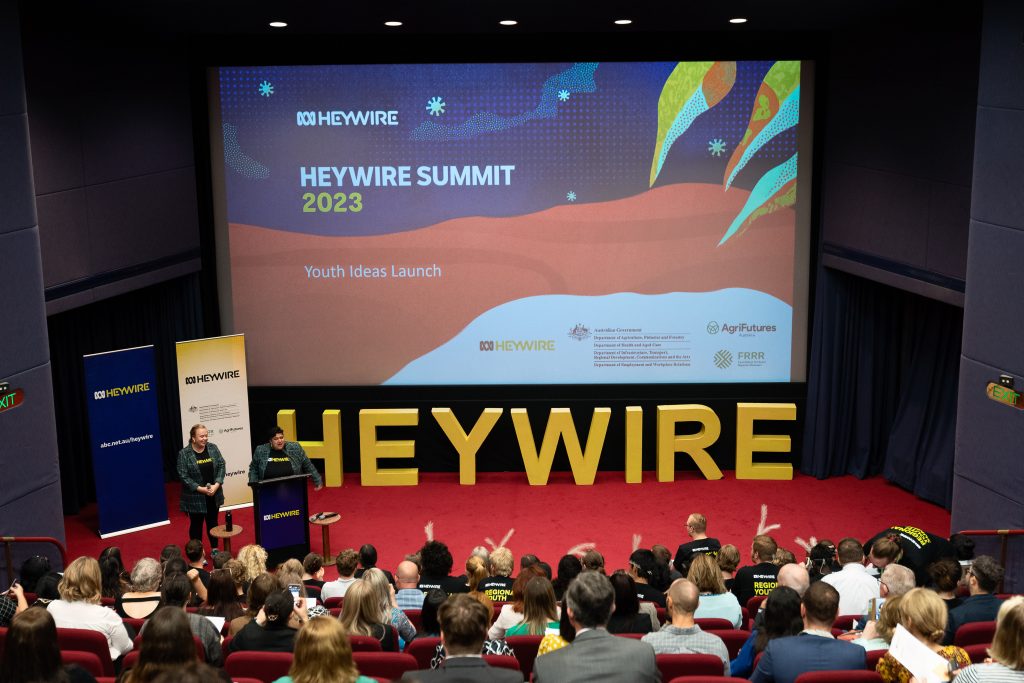
The FRRR ABC Heywire Youth Innovation Grants program has supported remote, rural, and regional youth since 2013, providing them with the opportunity to not only identify the issues that matter most to them but also take action to combat them.
This year, there is $115,000 in grants available nationally and an additional $35,000 specifically to fund projects in Queensland, thanks to a new partnership with The John Villiers Trust.
The six ideas respond to common issues of concern identified by the 39 regional youth who attended the ABC Heywire Youth Summit, a youth leadership and skills development event held last month in Canberra.
FRRR and its partners will fund grants that enable activation of these ideas across rural Australia, enabling community organisations and not-for-profits that work with young people to either implement these ideas or to develop their own projects to address the issues raised, which include:
- Boredom Relief: How might we create safe spaces for youth?
- Easy Access: How might we empower regional youth to take charge of their mental health and support their mates?
- Homegrown Hub: How might we create cost of food relief in communities across Australia?
- Idea 4 Change: How might we provide resources to ensure young people are supported and engaged in their education, with their diverse learning needs catered for?
- Hear Our Voices: How might we ensure that all youth voices are heard and represented on issues that matter to them?
- We are not Alone: How might we create a better future for all young people living with a disability to feel understood and supported in regional Australia?
More details about each of these ideas can be found on the ABC Heywire website.
Kadee from Barcaldine, Queensland, Iningai Country, is a 2023 Heywire Winner and was part of the group that developed the Idea 4 Change project. Kadee said it was inspiring knowing their idea would become a reality in rural Australia.
“I’ve already had educators of my school asking heaps of questions and having me go into depth about our idea. I’m feeling intrigued to see how everyone’s ideas evolve over time and how they impact our country.”
Deb Samuels, FRRR’s People Portfolio Lead, said that to truly create impact for young people, they need to be at the table in making decisions and the Youth Innovation Grants program facilitates this.
“From idea development, through to assessing grant applications that are recommended to the FRRR Board for funding, the Youth Innovation Grants program is led by rural youth, at all stages of the program. This process ensures that funding is allocated to create impact where it matters most for young people in remote, rural and regional Australia.
“Our long-term partnership with ABC has been instrumental to the success of this program. The ABC Heywire Summit is such a powerful platform for young Australians to share their voices and ideas to policy makers, and across the nation. To be able to invest in these ideas with funding that allows communities to act on these ideas is such a phenomenal opportunity.
“We encourage rural community groups to connect with local young people, consider the six issues and work together to develop a project and application that addresses one of the issues, in a local context. Our Youth Assessment Panel and I look forward to exploring all the innovative ideas developed,” said Ms Samuels.
This is the 11th year of the partnership between FRRR and the ABC to run the Heywire Youth Innovation Grants.
“We’re proud to once again partner with FRRR to invest in youth ideas across remote, rural and regional Australia,” said Warwick Tiernan, ABC Director, Regional and Local.
“We know that young people are keenly aware of the issues that affect them and given the chance, they have the skills to develop solutions to them. Being able to back these ideas with grants to make them come to reality shows young people we are doing more than just listening, we are acting on them.
“We’re excited to see what pioneering projects come to life this year and share these stories through the ABC network.”
To date, more than $1.4 million in community and philanthropic investment has helped to fund more than 174 projects in more than 130 communities. This round of FRRR ABC Heywire Youth Innovation Grants program is possible thanks to the generous support of FRRR’s donor partners, including The Sally Foundation, AMP Foundation, The John Villiers Trust, David Mactaggart Foundation and private donors.
Applications close Wednesday 7 June, and recipients will be announced in September. More information is available on the Youth Innovation Grants page.
Image is of ABC Heywire presentation event in the theatre at the Australian Parliament House, Canberra, by Bradley Cummings.
Grants up to $20,000 on offer
Remote, rural and regional communities across Australia can apply now for grants up to $20,000 for community-driven mental health and wellbeing projects, through FRRR’s In a Good Place (IAGP) program.
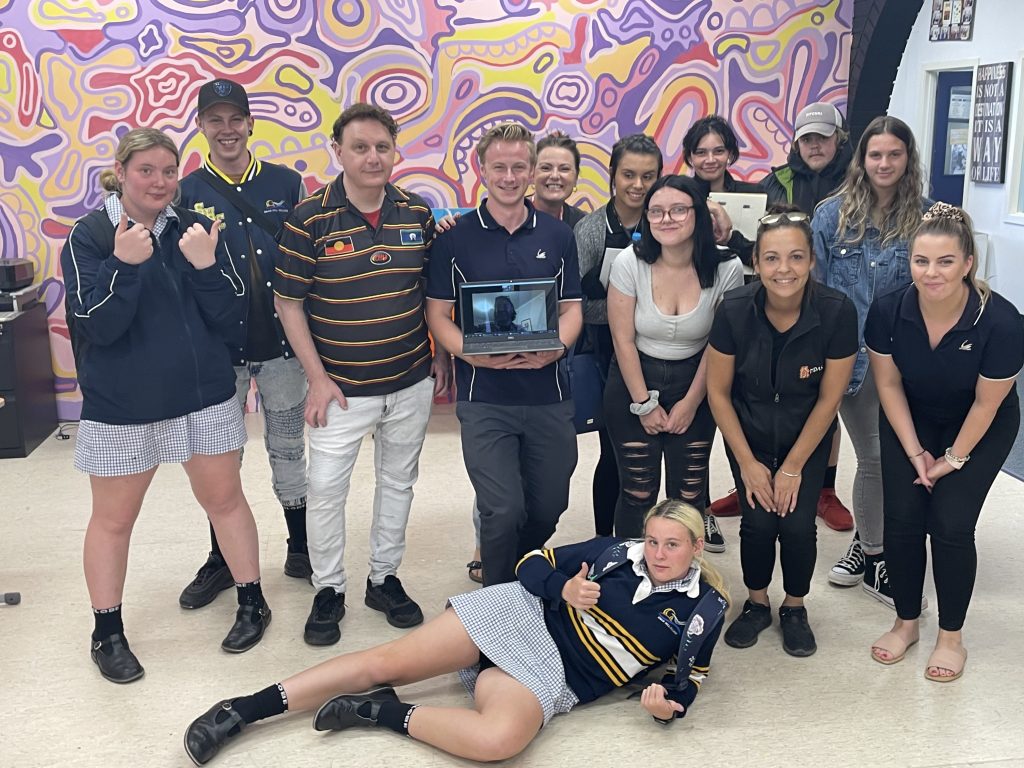
Community groups are invited to apply for up to $20,000 to support activities that empower locals to talk, connect, learn, participate and foster help-seeking behaviours.
FRRR and CCI Giving are offering $250,000 in IAGP grants, a boost of $50,000 on prior grant rounds, thanks to a new five-year partnership.
Jeremy Yipp, CCI General Manager, General Insurance Claims and Chair of CCI Giving, said that since partnering with FRRR in 2018, CCI Giving has seen the direct impact made to 53 mental health-focused projects funded across remote, rural and regional Australia.
“Seed funding is critical for the smaller community projects so that they can develop a proof of concept for their activity model and see what works and what doesn’t, and why. Without assistance from grant programs, such as In a Good Place, these projects may never have the opportunity to really get off the ground and reach their full potential,” Mr Yipp explained.
Jill Karena, FRRR’s People Programs Portfolio Lead, said that, now in its sixth year, the In A Good Place program continues to provide vital funding to support the mental health and wellbeing of communities across remote, rural and regional Australia.
“Projects funded through the In a Good Place program typically bring people together, sometimes to heal, always to learn.
“The program has a definite and important role to play in supporting rural communities in reducing the stigma surrounding mental health and help-seeking behaviours. It helps to bring mental health and wellbeing out in the open – making it OK to talk about and OK to reach out and ask for help,” Ms Karena said.
Applications opened on 12 April 2023. There is a two-stage application process. To get started, a brief Expression of Interest must be submitted no later than 5pm AEST, Wednesday 17 May 2023. Full details are available on FRRR’s website – https://frrr.org.au/in-a-good-place/. Applicants can also call 1800 170 020.
Local NFP leaders invited to join a roadmapping workshop
The Foundation for Rural & Regional Renewal (FRRR) and Bega Valley Shire Council are pleased to announce the start of a new initiative under the $1.3 million Australian Government Black Summer Bushfire Recovery Grants Program.
Investing in Rural Community Futures (IRCF) Bega Valley – Resilience Connection and Place Project builds on the work done over the last year through FRRR’s Investing in Not-for-Profit Capacity in Regional NSW (INFPC) program.
IRCF Bega Valley will support not-for-profits (NFPs) by strengthening their capacity to service local communities through a mix of on-the-ground support, using local facilitators and access to workshops and training.
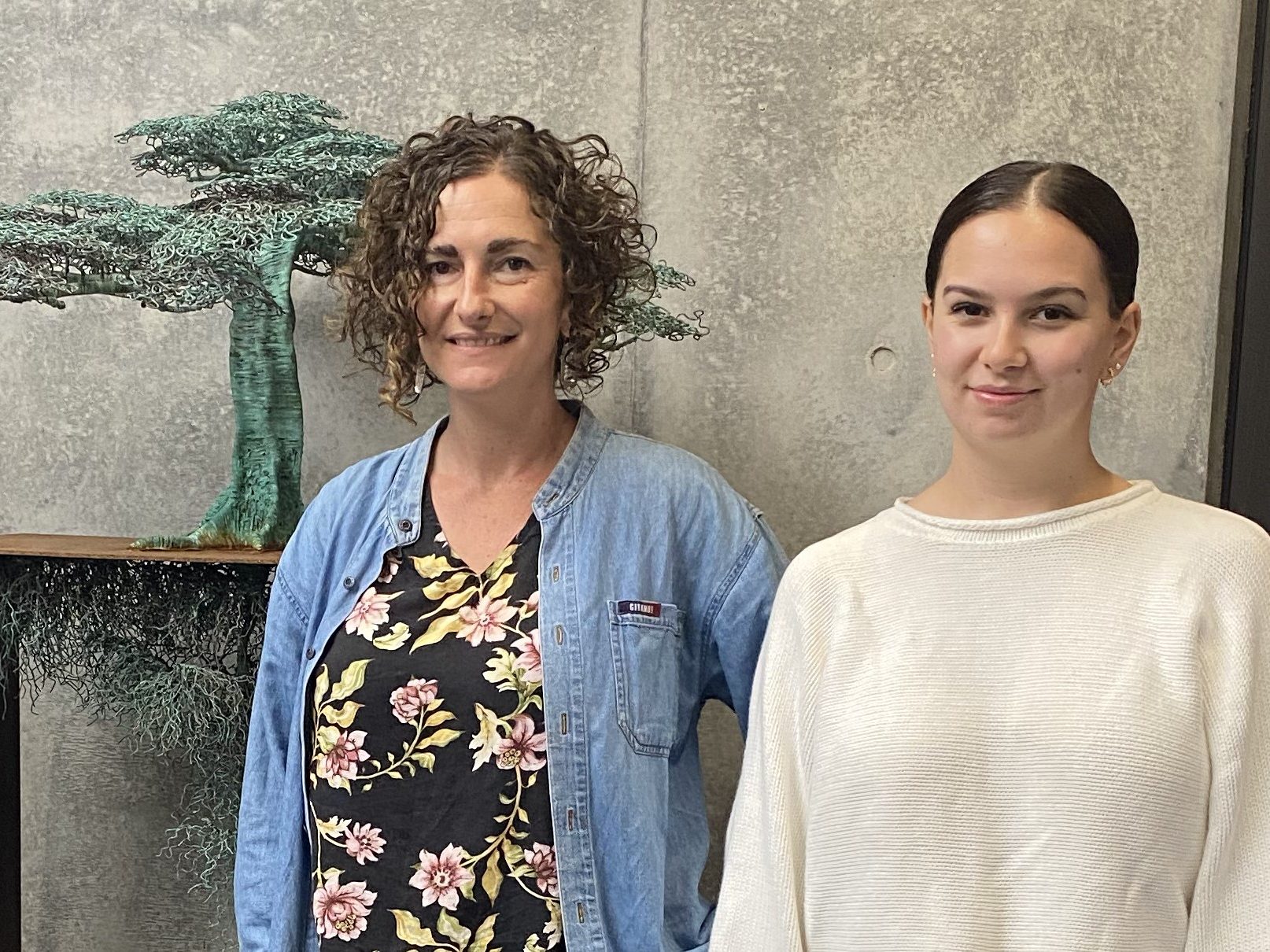
Bega Valley Shire Council is hosting two part-time facilitators, Leah Szanto and Bree Morgan. The facilitators will be connecting with groups across the shire to identify ways in which the local NFP sector can strengthen and adapt to changing community needs in order to thrive. NFPs will be invited to participate in a collaborative planning process aimed at building their capacity and ensuring the sustainability of individual organisations and projects through networking, skill development and community-led initiatives.
The IRCF model is currently being implemented in seven other communities across NSW. A key element is a road mapping process where goals and priorities are decided by the community, for the community. Work has already been done on this through the INFPC program over the last 12 months and now a roadmap will be designed at a workshop in Bega on Tuesday 14 March at 9:00 am. All local NFP leaders are invited to attend and registration is essential via https://frrr-bvsc-workshop.paperform.co/.
FRRR’s IRCF Program Coordinator, Carolyn Ardler, said this locally co-designed program will help the Bega Valley become even stronger than it was before the bushfires.
“It’s been great to see support being channelled into Bega Valley communities following the Black Summer bushfires, but we have also heard that it’s been overwhelming in many respects,” Ms Ardler said. “This new program will allow NFP community organisations and local leaders to work together to identify gaps in their capacity that may be hampering their ability to make the most of the funding and support that they have access to.
“It will also strengthen connections between NFP organisations and other communities where it operates. We’ve seen groups collaborate on projects that are truly transformational for their community, so it’s exciting to see the program kicking into gear.”
Council’s Community Development Coordinator, Chani Keefer, said it was great to be partnering with FRRR on this program.
“The goal of IRCF Bega Valley isn’t just to recover from the bushfires, but also to make our community stronger for the future,” Ms Keefer said. “This model will allow local community leaders to prioritise where they need to build their skills and capacity so they can work collectively towards a socially, economically and environmentally stronger Bega Valley.
“Having local facilitators on-the-ground has proven to be critical in other communities where this model has been implemented.”
To find out more about the IRCF program or to get involved, visit ircf.frrr.org.au/Bega or contact FRRR Carolyn Ardler, IRCF Program Coordinator – South Coast on 1800 170 020.
Community groups and NFPs can apply for up to $10,000
FRRR has announced the opening of the first round of Telstra’s Connected Communities Grant Program.
The aim of the program is to boost remote, rural and regional communities resilience, environmental sustainability and liveability.
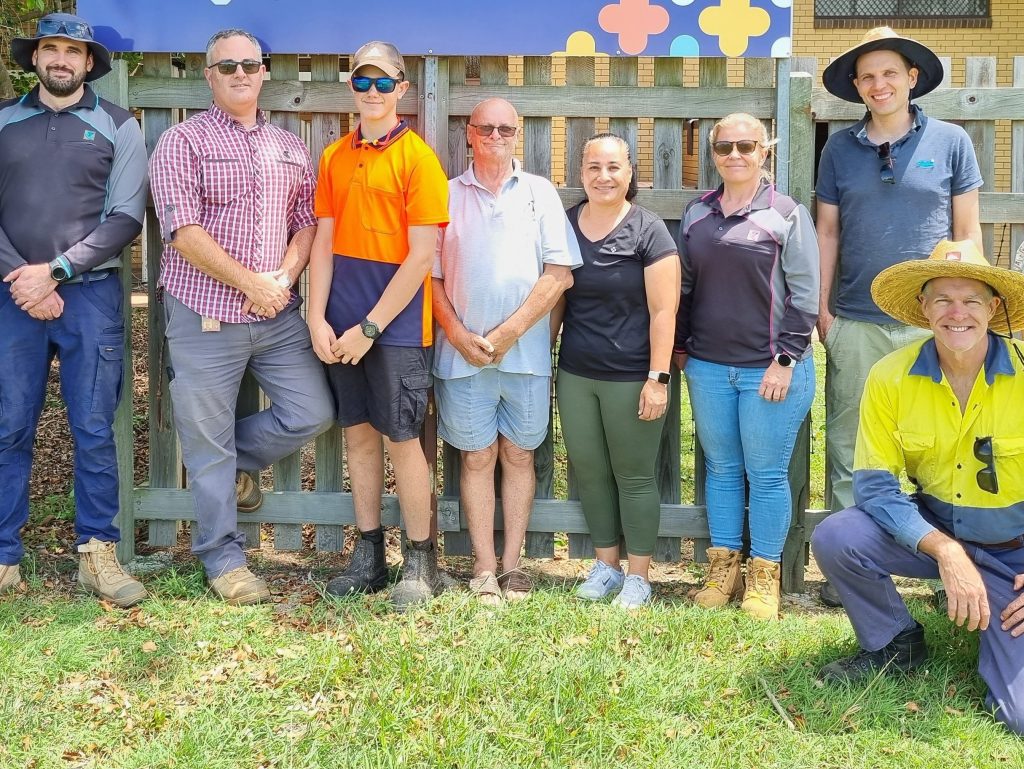
Telstra has committed to funding this grant program until 2025. The annual commitment of $200,000 will make grants up to $10,000 available for not-for-profit community organisations that provide access to information, technology, education and facilities for the purpose of building both social capital and digital capability.
The new program has three goals. To foster:
- Resilient communities that are well prepared and socially connected when disaster strikes with the ability to renew and recover together;
- Sustainable communities that are diverse and inclusive, planning for the health, wellbeing, and prosperity of their people and the planet; and
- Liveable communities that have digital capability and help to equip individuals with the skills to live, learn and work in a digital society.
Loretta Willaton, Regional Australia Executive and Regional Customer Advocate at Telstra said the program is all about keeping people connected in a range of ways, both online and offline.
“At Telstra, we know how important it is to keep people connected. The last few years in particular have shown everyone the importance of connectedness within our communities. Rural and regional Australia has been doing it particularly tough in recent years and so we wanted to do our part in helping the country to rebuild.
“Obviously one of the best ways to keep people connected is through technology and digital equipment but we know access, understanding and management of these tools can be a barrier. We’ve designed this program to create opportunities for a wide range of projects to address these barriers such as a local event, an educational workshop or not for profit organisations embracing new technology or managing cyber security. We are open to support any kind of initiative that gives people better access to information that will enable a stronger social network, safer online interactions, or access to information for disaster preparedness or environmental sustainability,” Ms Willaton said.
FRRR’s Acting CEO, Sarah Matthee, said that programs like these, help people to maintain their connection to their community and play a key role in many different aspects of life in remote, rural and regional Australia.
“We’re excited to launch the first round of this new program in partnership with Telstra. Our Heartbeat study highlighted a significant digital divide for remote, rural and regional not-for-profit organisations, particularly when it comes to accessing digital resources and the opportunity to improve knowledge and skills to harness technology to maintain and create connections. We know that these connections are so important in strengthening each community’s ability to withstand future disruptions and maximise sustainability and liveability.
“We’re looking forward to applications from community groups that are facilitating local events and community programs that support local communities learning and adapting to change – be it accessing information for disaster preparedness or better environmental practices, implementing better e-waste solutions, boosting cyber-security, and much more” Ms Matthee said.
Applications close Thursday, 30 March 2023 at 5pm AEDT. For more information and the guidelines, visit https://frrr.org.au/telstra-connected-communities-program/.
Potential applicants are encouraged to sign up for an online Grantseeker Webinar for more information about the program and useful tips for applying at 12pm AEDT, Monday 6 March.

The Foundation for Rural & Regional Renewal (FRRR) and the Australian Rural Leadership Foundation (ARLF) are looking for a local NFP partner to work with them across the Loddon Campaspe region as part of the Helping Regional Communities Prepare for Drought Initiative Community Impact Program.
The region encompasses the Campaspe, Central Goldfields, Greater Bendigo, Loddon, Macedon Ranges and Mount Alexander Shires.
The Initiative is funded through the Australian Government’s Future Drought Fund and designed to help agriculture-dependent communities across remote, rural and regional Australia enhance their preparedness for drought.
The $29.6 million investment over three years builds on the Future Drought Fund’s previous Networks to Build Drought Resilience program (led by FRRR) and the Drought Resilience Leaders program (led by ARLF).
The place-based Community Impact Program is designed to support community members and not-for-profit organisations to drive local action that helps prepare for drought. There are two main components to the program:
- Community Impact Grants: This between $200,000 and $500,000 available and FRRR will work with the lead community organisations to develop, co-design and deliver projects that strengthen community networks, capabilities and facilities that support drought preparedness; and
- Community Leadership Activities: ARLF will offer a range of funded leadership development activities to support community members to develop their leadership skills, and equip them with the networks to respond to drought preparedness in their community.
FRRR’s Disaster Resilience and Recovery Lead, Nina O’Brien, said that this a great opportunity for the communities in Loddon Campaspe to proactively strengthen drought resilience.
“While there has been a lot of flooding in recent months, it’s highly likely that it won’t be too long before drought is on our radar. Rural communities are better able to withstand the impacts of events like drought – and indeed other disasters – when they are strong and well connected. The overall aim of this program is to facilitate increased social connection, strengthen network opportunities and link capacity building opportunities to ensure widespread local benefit, so that communities are better prepared for the future.
“But we know that looks different in each community, which is why we are looking for a local lead partner. They will work with other community members and organisations to identify what local action is most appropriate. FRRR staff will be there to support the process and we’ll also fund a facilitator to work with the community to get the best outcome possible.
“The grants can fund projects, events, initiatives, training, capability building and small-scale community infrastructure projects and we’re really keen to make sure that First Nations communities and younger people are also engaged in drought resilience planning and action,” Ms O’Brien explained.
As part of the program, ARLF will offer a number of optional and complementary Leadership Development Activities at no cost to the successful applicants. These are designed to strengthen the leadership capabilities of communities to build individual and community drought resilience.
ARLF’s Chief Executive Officer Matt Linnegar said that because every lead organisation and region will be at a different point in their resilience journey, ARLF has a number of options that communities can tap into.
“We have five leadership development activities, ranging from intensive residential leadership programs to a series of deep-dives into particular leadership topics to group coaching. Each is underpinned by the concepts of adaptive leadership, resilience and network leadership.
“Applicants will need to include their preference for leadership development activities when they lodge their express of interest for the Community Impact Program, and we will work closely with applicants to refine their preferences as we move through the collaborative project design phase,” Mr Linnegar explained.
Initial expressions of interest close 22 March 2023, with shortlisted groups commencing co-design in their communities in May and funding confirmed in August 2023. Groups will have until June 2025 to implement the projects.
Interested groups can learn more about the program and lodge their EOI by visiting www.frrr.org.au/impact-program.
More Black Saturday funding for community-led initiatives
FRRR is inviting applications from local not-for-profit groups for grants to support ongoing recovery efforts following the Black Saturday bushfires in 2009.
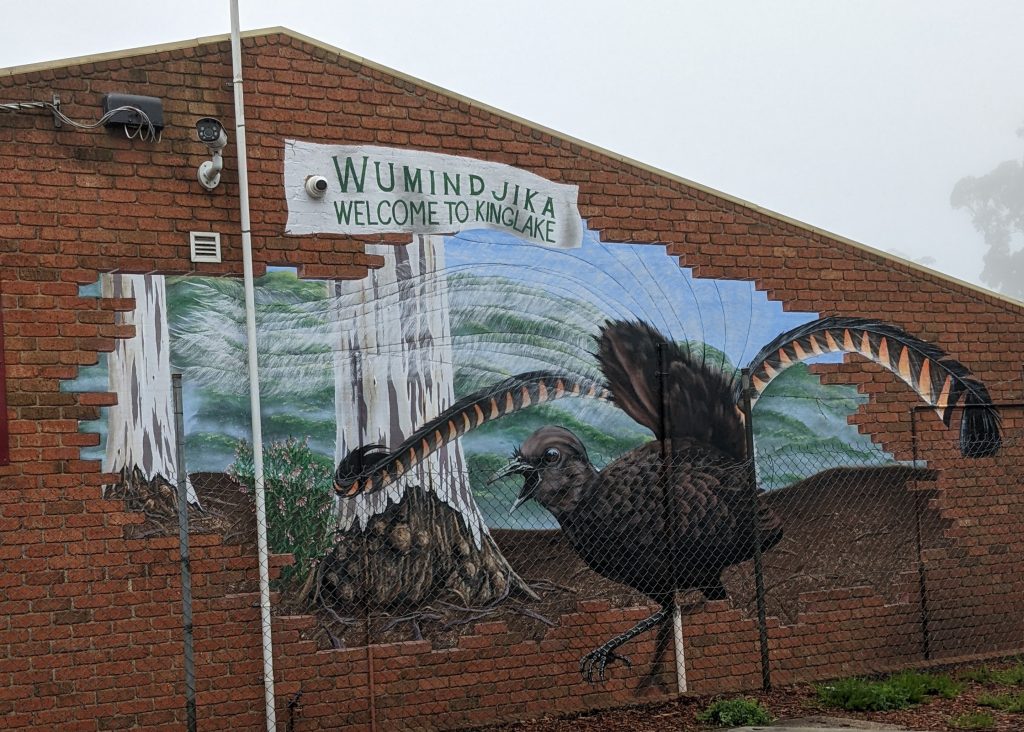
Thanks to the Victorian Bushfire Appeal Fund there is $180,000 available to not-for-profit groups in Kinglake, Kinglake Central, Kinglake West, Pheasant Creek, Toolangi and Flowerdale. Projects identified through the Kinglake Ranges and Flowerdale Conversations for Change talks and Toolangi-Castella community plans will be prioritised.
Nina O’Brien, FRRR’s Disaster Resilience and Recovery Lead, said that FRRR is keen to get this last tranche of funding out into the community to fund community-strengthening and resilience-building projects that align to the VBAF program’s intent.
“We had some great projects come forward at the end of last year and it’s pleasing to see them starting to kick off. However, not all the applications we had last year fit with the guidelines of the program and the intent of the Victorian Bushfire Appeal Funds program, hence we still have some funding available.
“Applications must be for new projects that directly assist those individuals and communities that were affected by the 2009 fires and need respond directly to a specific hardship or distress caused by the bushfires. Projects also need to benefit the wider community and so applications should demonstrate community support and the involvement of a range of community groups or representatives,” Ms O’Brien explained.
Approximately $180,000 is available for distribution via grants of up to $25,000, or higher by exception. Applications requesting more than $25,000 must be discussed with FRRR prior to submission. Note too that projects relating to government-owned infrastructure and/or sporting organisations must be discussed with FRRR before they are lodged.
Applications close Wednesday 3 May, 2023, at 5pm AEST, with successful applicants announced in August 2023. For more information and the guidelines, visit https://frrr.org.au/grants-for-resilience-wellness-kinglake/ . Email recovery@frrr.org.au or call 1800 170 020.
To date, through GR&W Kinglake, FRRR has awarded over $1.1M for 35 projects to local groups in the Kinglake Ranges. Any community impacted by 2009 bushfires and not located in Kinglake Ranges region can apply for support through FRRR’s Strengthening Rural Communities program.

